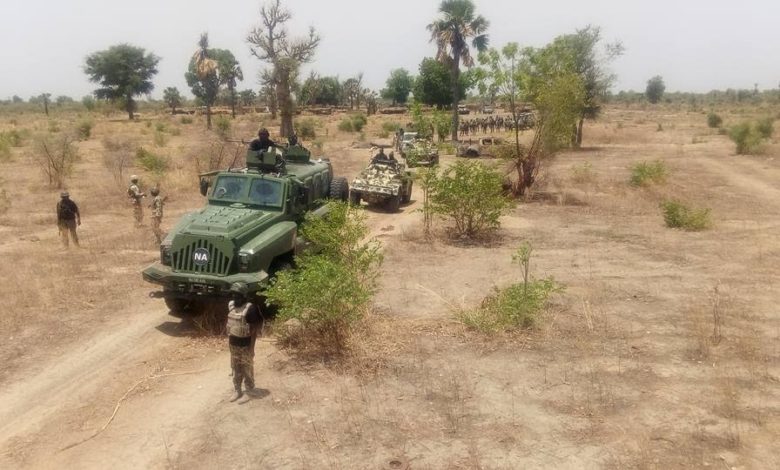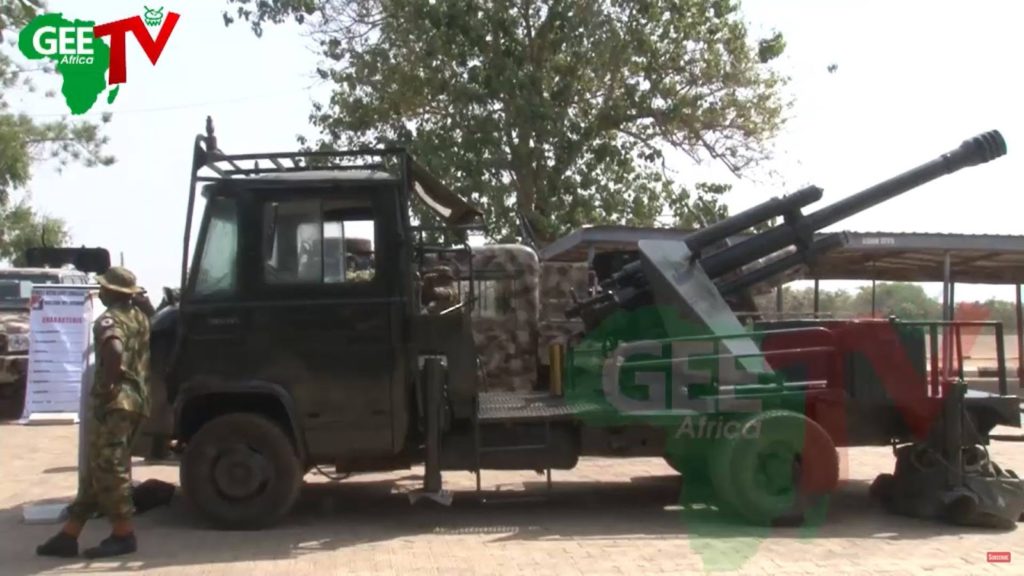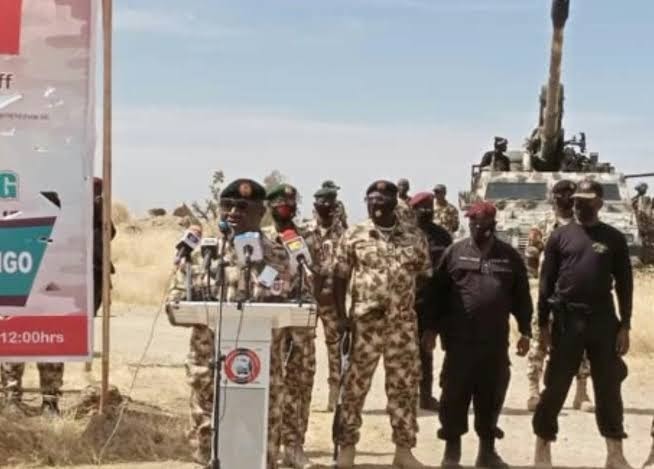Nigerian Army Launches Dry Season Offensive With New Combat Equipment

Troops of Nigerian Army battling insurgents in the Northeast region of the country have launched a new operation against the terrorist groups with the support of additional troops, combat motorcycles, self-propelled artillery systems and armoured vehicles.
The operation codenamed Tura Takai Bango, a subsidiary of the Counter Insurgency (COIN) Operation Lafiya Dole and the first offensive in 2021 is leveraging on improved mobility associated with the dry season and injection of combat capabilities such as ST-1 fire support vehicle armed with a 105 mm gun and the SH5 self-propelled artillery vehicle armed with a 155mm howitzer.
HumAngle observed what appears to be refurbished FV103 Spartan tracked armoured personnel carrier and variant of the Spartan MK III in the theatre of operation.
It’s unclear if the Army has also deployed the VT4 main battle tank and 105mm artillery system modified by the Artillery Corps for the operation.

Troops participating in the operations which began on January 3 are expected to advance into territories where insurgents are present, particularly the dreaded Alagarno forest – Timbuktu triangle area.
“The operation is meant to be theatre-wide targeting known insurgents’ enclaves-hideouts for neutralisation and clearance,” said Major General NE Angbazo, Chief of Training and Operations during a Press Briefing at 27 Brigade Tactical Headquarters Buni Gari, Yobe State.
Angbazo added, “At the end of the operation, it is envisaged that our citizens will be free to move about, conduct their farming and other businesses in a safe and secured atmosphere, devoid of any insurgents’ threat and harassment.”

The military has scored multiple gains in its war against insurgency in the Northeast including capturing and destruction of gun trucks used by the terrorist group.
There is optimism that the operation, if sustained and enhanced, could change the battlefield dynamics and allow the Army to project an offensive posture.
In 2020, the Army carried out a series of offensive including an offensive in March that was faced with stiff resistance from insurgents using improvised explosive devices, rocket-propelled grenades and gun trucks.
The Army launched Operation Fireball in October 2020 after Operation Kantana Jimlan.
The COIN Operation Lafiya Dole will continue military actions against insurgents including airstrikes by the Air Task Force.
Since 2009, Nigerian troops have been battling Jama’atu Ahlis Sunna Lidda’awati Wal- Jihad known also as Boko Haram and its splinter faction, the Islamic States for West Africa Province (ISWAP).
What began as a military operation to quickly crush Boko Haram uprising snowballed into urban battles, assassinations and insurgency campaign.
The first Joint Task Force (JTF) against Boko Haram insurgents code-named Operation Restore Order I, II and III was conducted in succession between 2011 and 2013.
On May 14, 2013, the Nigerian government declared a state of emergency in the three worst-affected states of Adamawa, Borno and Yobe, and expanded the JTF operations into Operation Boyona to restore law and order.
Operation Boyona was later renamed Operation Zaman Lafiya in August 2013.
As Boko Haram insurgency reached its peak between the last quarter of 2014 and first quarter of 2015, the Government and military responded with a counter-offensive campaign, concurrently with offensive launched by troops of neighbouring Lake Chad nations to push back Boko Haram and recapture towns.
In July 2015, the Chief of Army Staff Lieutenant General Turkur Buratai launched Operation Lafiya Dole, to replace Zaman Lafiya.
Support Our Journalism
There are millions of ordinary people affected by conflict in Africa whose stories are missing in the mainstream media. HumAngle is determined to tell those challenging and under-reported stories, hoping that the people impacted by these conflicts will find the safety and security they deserve.
To ensure that we continue to provide public service coverage, we have a small favour to ask you. We want you to be part of our journalistic endeavour by contributing a token to us.
Your donation will further promote a robust, free, and independent media.
Donate HereStay Closer To The Stories That Matter




